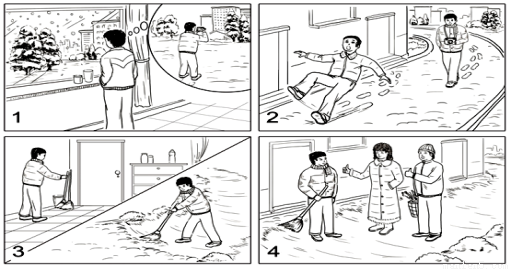题目内容
In the summer of 1885, nine-year-old Joseph Meister was very ill. He had been wounded by a sick dog that had rabies(狂犬病), a very dangerous disease. His parents were told that there was probably only one man who could save Joseph’s life——Louis Pasteur.
When Pasteur was a young boy in France, he spent many hours every day with the chemist (药剂师) who lived in his small town. At that time, the chemist had to make all the medicines himself. Young Louis enjoyed watching the chemist as he worked and helped those people who came to him each day.
As a school boy, Pasteur worked slowly and carefully. At first, his teachers thought that young Louis might be a slow learner. Through elementary school, high school, and college, Pasteur worked in the same thoughtful way. Then he became a college professor and a scientist , and he continued to work very carefully.
Pasteur was studying about the germs(细菌)that cause rabies when Joseph Meister became ill.In fact, Pasteur believed he had a medical treatment for rabies, but he had never given it to a person before. At first, Pasteur was afraid to treat Joseph, but the poor child was dying. Pasteur gave Joseph an inoculation(预防接种)every day for ten days. Slowly, the child became better.
During his lifetime, Pasteur studied germs and learned how they cause diseases in animals and people. He developed vaccinations(疫苗)that prevent many of these diseases. On September 28,1895, Louis Pasteur passed away, at the age of 72. The work of this great man has been of great help to modern medicine.
1.The story of Joseph Meister is given to __________.
A.express the author’s sadness
B.introduce the subject of the text
C.show some common diseases in 1885
D.warn children to stay away from dogs
2.According to the text, young Louis _________.
A.was once badly hurt by a dog
B.was very interested in medicine
C.made a living by working for a chemist
D.had been thought of by his teachers
3.We can learn from Paragraph 3 that Louis Pasteur __________.
A.was always patient B.was clever but proud
C.was a slow learner D.was a humorous professor
4.What would be the best title for the text?
A.Germs and diseases
B.Rabies: a terrible disease
C.The earliest chemist in France
D.Louis Pasteur: a great scientist
 同步练习强化拓展系列答案
同步练习强化拓展系列答案

